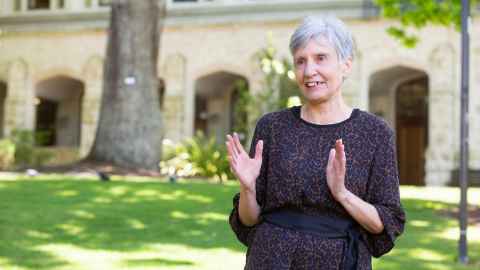Why are humans failing climate change test?
09 November 2022
University's sustainability papers tackle the biggest challenges facing humanity.
Human nature is blamed for a collective failure to address climate change.
Too selfish… too short term in our thinking… we just didn’t evolve to cope with such a gradually unfolding threat, commentators and social scientists say.
Humans “obsess over the present, worry about the medium term and cast the long term out of our minds, as we might spit out a poison,” ran a New York Times report on decades of missed opportunities.
But Waipapa Taumata Rau, University of Auckland psychology Professor Quentin Atkinson doesn’t accept that we’re just not made for this challenge.
“Of course, there is a sense in which humans did not evolve to solve climate change, just as they did not evolve to read, sit at desks all day, live in cities, scuba dive, or promote gender equality,” he wrote in a 2021 paper. “Culture allowed for these behaviours.”
Instead of presenting human nature as an intractable barrier, researchers should highlight the roles of institutions, policies and a neoliberal world view, then think about how to shift the culture, he argues.

This is an example of the topics covered by the University’s sustainability papers, SUSTAIN 100, SUSTAIN 200, and SUSTAIN 300, offered by the Faculties of Arts and Science, and this year completed by nearly 400 students.
The first paper, open to all students, is an introduction to sustainability, which this year included a focus on water and fast fashion. “How do we create sustainable communities?” asks the second. The third examines sustainability at a global level, tackling topics including international governance, the United Nations Sustainable Development Goals, population growth, and climate refugees.
Throughout their studies, students take on group projects: creating games to raise public awareness, suggesting improvements at the University, and, in the third year, devising political policies to effect change.

In one project, students proposed gamifying litter collection with an app that people could use to scan rubbish and earn points. In another, a “comeback container scheme” would cut waste to landfill generated on campus by lending food containers to students.
Started in 2019, the sustainability module was proposed by members of the Faculty of Science Sustainability Network and academics in the Faculty of Arts. The course coordinators are Professor Niki Harre, of the School of Psychology, and Joe Fagan, of the School of Environment.
“We saw the need for an interdisciplinary approach to sustainability teaching that drew on the variety of expertise here at the university and in our communities,” says Professor Harre.
* The University has won top ten rankings from the two main organisations assessing universities for their progress towards sustainability.
Media contact
Paul Panckhurst | media adviser
M: 022 032 8475
E: paul.panckhurst@auckland.ac.nz